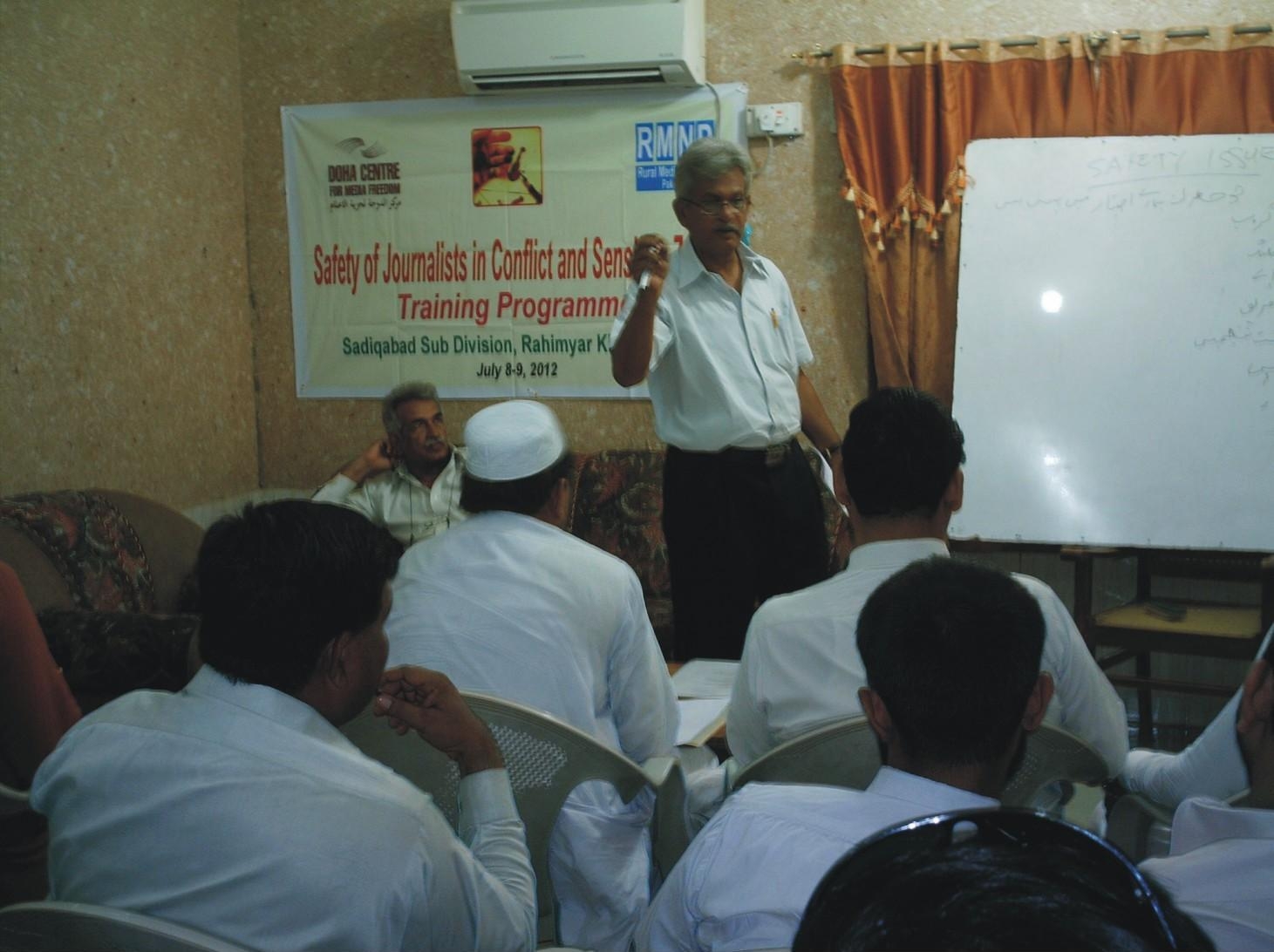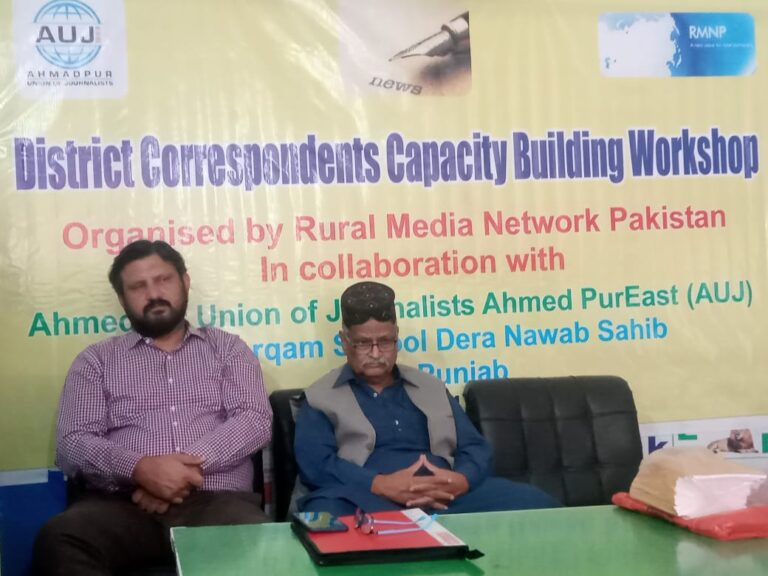Pakistani journalists receive hostile environment training from DCMF

Doha Centre for Media Freedom recently conducted the third in a series of training workshops organised in conjunction with the Rural Media Network Pakistan (RMNP), aimed at supporting journalists working in hostile areas and providing them with the expertise necessary to work safely.
Doha Centre for Media Freedom recently conducted the third in a series of training workshops organised in conjunction with the Rural Media Network Pakistan (RMNP), aimed at supporting journalists working in hostile areas and providing them with the expertise necessary to work safely.
The first two sessions were held in Mubarakpur and Sadiqabad, while the latest seminar took place in Chani Goth. All of these locations have seen violence against journalists in recent years, and they are known as particularly dangerous places to work for members of the media.
Mubarakpur, which has witnessed a number of violent incidents in recent months, was the location of the arrest of Shabbi Churra, a suspected member of the banned religious group, Jaish-e-Mohammad and a close comrade of the late terror suspect, Abu Talha.
According to reports, police arrested Churra at a hideout in the area, where they also found a large quantity of arms and ammunition, including mines, rocket launchers, hand grenades, suicide bombing jackets and other weapons.
Similarly, less than two weeks before the workshop in Chani Goth, an angry mob reportedly beat a man to death and set his body on fire for burning the Holy Quran.
The mob broke into a local police station to take the man, and a number of senior police officials were injured during the attack.
These kind of attacks and the hostile environment in rural areas of Pakistan have led to journalists and media officials fearing for their safety and feeling unable to perform their jobs properly.
To help enable them to report safely, trainers advised journalists to take various precautions while working in risky areas and also to avoid rushing to break a story, urging them instead to verify the facts, death counts and to try to get opinions from both sides on any topic.
Participants were taught about various ways to work when dealing with a large crowd or mob of people, and also how to report on extreme situations, such as following a bomb blast.
Resolution adopted
Ehsan Ahmed Sehar, President of RMNP, called upon the media houses to provide life insurance to journalists and assign only senior correspondents to report in particularly hostile zones. Sehar put forward a resolution, unanimously adopted by all the journalists involved in the sessions, demanding that the government provide safety and security to journalists working in Pakistan and denouncing the situation which has developed in the country in recent years.
According to RMNP, 45 journalists have been killed in three years, while more than 2,000 have been kidnapped, arrested or injured during the past 11 years in different areas of Pakistan, but not a single case has been investigated and no culprits have been arrested.
The participants explained that they considered reporting on the government, politics, religious extremism and terrorism as life-threatening, and discussed a number of examples which have involved themselves or colleagues being victims of threats or physical attacks because of the stories on which they have reported.
“Receiving threats via SMS or on phone is a very common thing for journalists here. Political and religious groups want stories in their favour,” said Farhan Iqbal, a journalist who participated in one of the workshops.
The participants were advised not to file one-sided stories and to provide all parties involved with a chance to clarify their version of events. They were also informed that while covering extremist and militant groups’ activities they should concentrate on facts and avoid sensationalising the stories.
“Reforms in media ethics and professional conduct are only possible when media organisations like All Pakistan Newspapers Society (APNS), Council of Pakistan Newspapers Editors (CPNE), Pakistan Broadcasters Association (PBA) and Pakistan Federal Union of Journalists (PFUJ) unite for this cause. Whatever reforms are introduced must be acceptable to both the government and the working journalists,” added Sehar.
Source: DCMF

